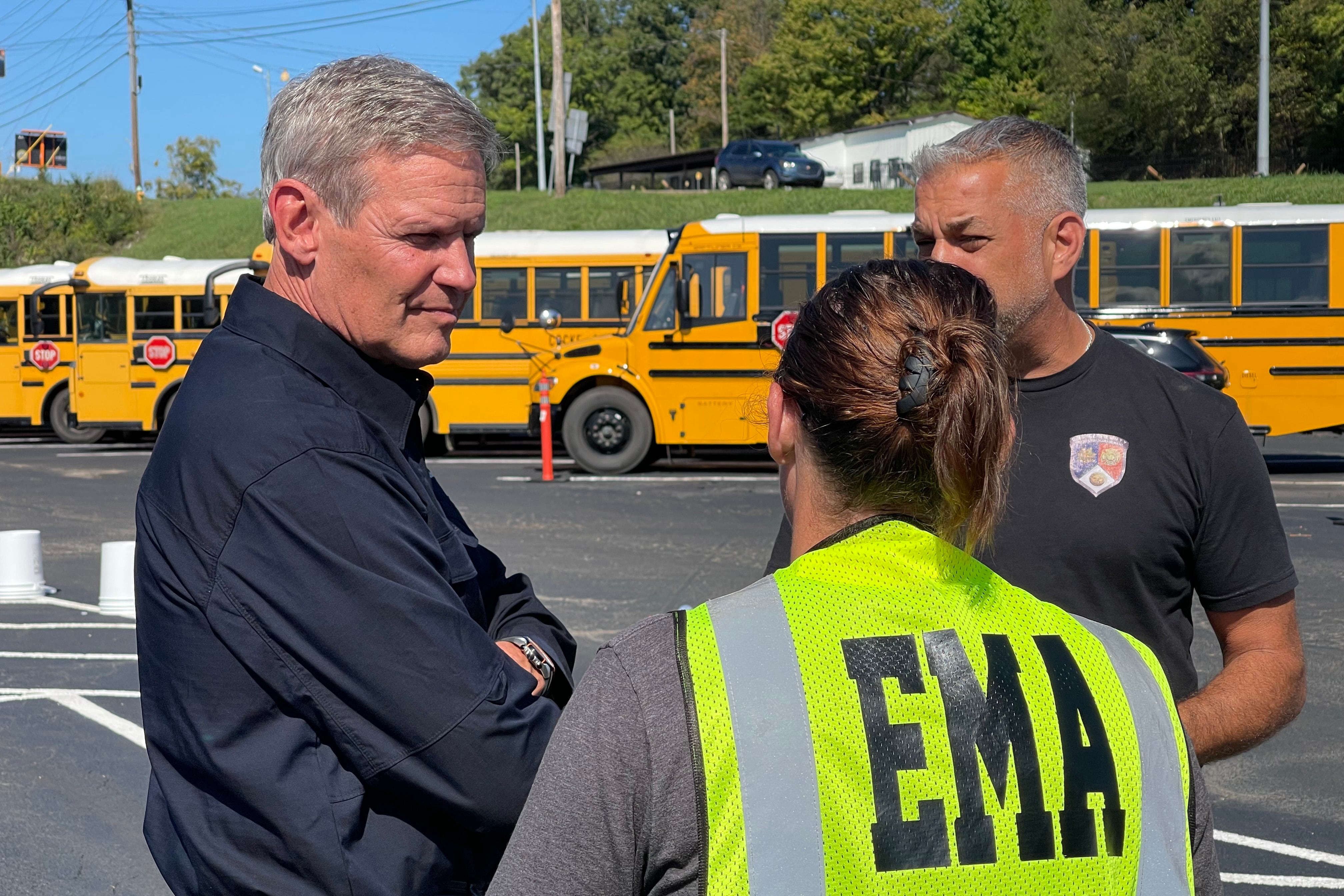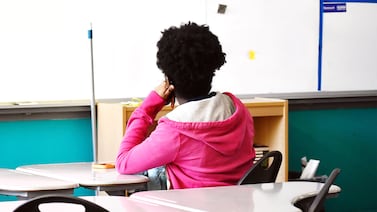Sign up for Chalkbeat Tennessee’s free newsletter to keep up with statewide education policy and Memphis-Shelby County Schools.
Gov. Bill Lee wants state lawmakers to take up his universal school voucher bill quickly in hopes of starting a statewide program this fall to let more Tennessee families use taxpayer funding to send their children to private schools.
And he may call a special legislative session this month to deal exclusively with his Education Freedom Act, plus emergency relief for flood-ravaged counties in northeast Tennessee.
“There’s nothing off the table,” Lee told reporters Wednesday in Nashville when asked about the likelihood of a special session.
The term-limited Republican governor said the two matters need to be addressed early this year and added that he is “finalizing a strategy and a plan.”
Lee is seeking to avoid a prolonged legislative battle like the one that led to the collapse of his 2024 universal voucher proposal in finance committees.
But he’ll need to act quickly.
The regular session of the 114th General Assembly is set to convene Jan. 14, with committee assignments and other organizational business first on the agenda. The legislature plans to pause its work for the Jan. 20 inauguration of President-elect Donald Trump, which Lee and many members of Tennessee’s GOP-controlled legislature plan to attend.
The week of Jan. 27 is a possibility for a special session, according to several sources.
In a clause that implies a sense of urgency or emergency, the Tennessee Constitution says the governor may convene a special legislative session “on extraordinary occasions” to address specific matters.
There’s no disagreement that northeast Tennessee urgently needs more state assistance after Hurricane Helene caused hundreds of millions of dollars of damage to public infrastructure, including roads, bridges, and schools, in late September.
But Lee’s critics say his voucher proposal isn’t the kind of priority that warrants an urgent special session.
“Using storm relief as a pretext to promote a voucher scheme is a disservice to our families and undermines the real challenges we face,” said Sen. London Lamar, of Memphis, who chairs her chamber’s Democratic caucus.
Rep. John Ray Clemmons, of Nashville, said Lee should have called a special session months ago to help Tennessee’s inland mountain communities battered by Helene’s storms, which killed 18 people in the state.
Instead, he “clearly and purposefully waited almost four months until he thought he had enough votes to pass his voucher scam,” said Clemmons, who chairs the House Democratic caucus.
If Lee does call a special session, it’s likely that he believes he has the votes to pass a voucher policy that has been one of his top objectives since he took office in 2019.
Since recent legislative races delivered the governor a mix of wins and losses on the issues, his administration has been working to galvanize support for a revised plan.
The governor is touting his Education Freedom Act in 30-second ads paid for by the pro-voucher American Federation for Children and running in the state’s four largest TV markets before the legislature convenes.
Another group, Americans for Prosperity, which is affiliated with Kansas billionaire Charles Koch’s conservative advocacy network, announced Wednesday that it’s also starting to run radio ads supporting Lee’s proposal and featuring U.S. Sen. Marsha Blackburn, of Tennessee, and Knox County Mayor Glenn Jacobs, a likely candidate for governor in 2026.
Meanwhile, a grassroots group of Tennesseans calling itself Public School Strong hosted a virtual town hall on Tuesday evening to rally opposition to the bill. The group plans to hold in-person forums and rallies Jan. 11-14 in Knoxville, Winchester, Memphis, Clarksville, Smyrna, and Chattanooga.
“It’s no surprise that everyday Tennesseans are not the ones asking for Lee’s entitlement program for the wealthy,” the group wrote in an organizational letter. “Instead, it’s out-of-state billionaire groups like Americans for Prosperity leading the charge by pouring millions upon millions of dollars into campaigns in our small towns and threatening our local elected leaders if they dare to side with their constituents.”
Lee’s latest proposal would provide of about $7,100 each to 20,000 students in the first year, half of which would be subject to income limits of three times the threshold to qualify for reduced price school meals, or about $173,000 for a family of four.
In 2019, the legislature passed Lee’s first voucher bill to create a smaller voucher program for students in Memphis and Nashville. At the time, the governor said vouchers were needed to give more educational choices to low-income students attending low-performing schools.
The new plan would eventually eliminate income limits and open up vouchers to students anywhere in the state.
You can read the new bill here and track its movement in the legislature here.
Correction: A previous version of this story said the American Federation for Children paid for radio ads supporting Gov. Lee’s Education Freedom Act. Those ads were paid for by Americans for Prosperity, another group, while the AFC paid for a TV ad featuring the governor.
Marta Aldrich is a senior correspondent and covers the statehouse for Chalkbeat Tennessee. Contact her at maldrich@chalkbeat.org.







